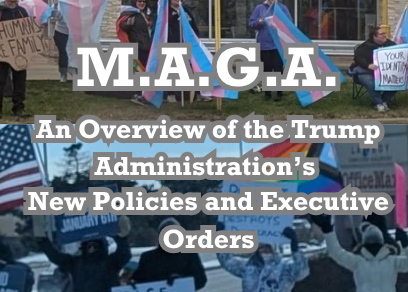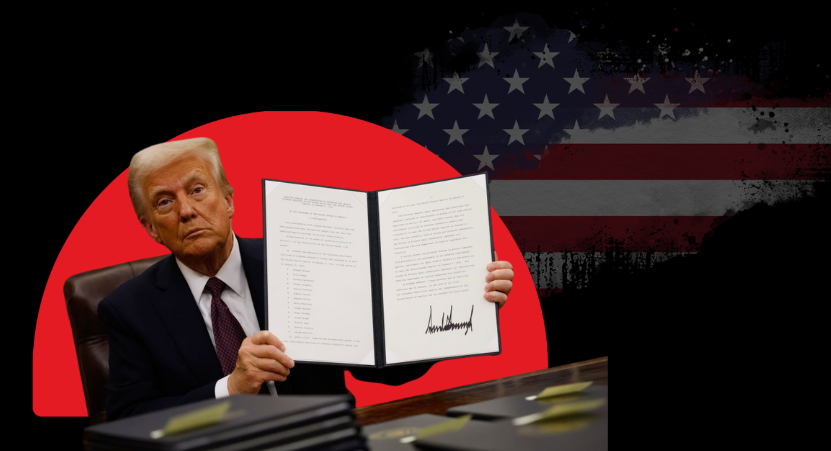Government shutdown debrief
Longest government shutdown
March 14, 2019
Jan. 25 marked the end of the longest government shutdown in American history with President Trump signing a continuing resolution that funds the government until Feb. 15. The shutdown, lasting from Dec. 22, 2018, to Jan. 25, 2019, occurred due to a dispute between President Trump and Democrats in the House of Representatives over President Trump’s $5.7 billion border defense budget request. According to ABC news, an estimated 800,000 federal employees were impacted.
“The shutdown definitely impacted me and my husband, both financially and emotionally. Thankfully we are a dual income household… but it was difficult scaling back our expenses and activities in order to accommodate for the lack of over half of our income,” said Grayslake Central High School alum Tanya Dorman. Due to the lack of payment, some workers chose not to come to work or relax regulations.
“I would say it affected the people that work at the airport, [Transportation Security Administration] workers [were not] enforcing the rules…as they used to.. you aren’t allowed to take large amount of food through TSA but [during the shutdown] they’re allowing it because it take extra time to go through…[along with other procedures] it slowing everything down,” said TSA employee at O’Hare Airport Javier Martinez. Although there are occurrences of relaxed regulations, not all federal workers treat their jobs the same under unpaid circumstances.
“Just because they are not getting paid, doesn’t mean they lost their sense of obligation to both their job and their country. We all believe in what we do, and we want to keep doing it. We just want to be paid for it!” said Dorman.
However, not just the workers and the people they serve feel the impacts of a government shutdown: its everybody. Data from the nonpartisan Congressional Budget Offices (CBO) reports that the 2018-2019 government shutdown cost the U.S economy $11 billion through lost output from federal workers, delayed government spending and reduced demand. The CBO further estimates that the economic impact will continue to hit as it estimates an additional $8 billion will be lost in the first financial quarter of 2019. The majority of the $11 billion losses are estimated to be recovered as federal employees return to work, but an estimated $3 billion will be permanently lost.
Economics teacher Jason Janczak estimates that the loss of paychecks contributes to debt for some families impacted, hurting businesses like restaurants, movie theaters, and hotels that rely on the disposable income of these families. Although taking out loans will help banks, he says, it is a overall disadvantage. Janczak mentioned that the worst part was that many unpaid workers could not receive unemployment insurance to help support themselves during the shutdown.
In addition, during the shutdown agencies such as the U.S Department of Commerce and the Court of International Trade could not work at full capacity, if at all, which halted imports, exports, and international trade. Some, like Janczak, think shutdowns can make the U.S government appear unstable, increasing financial risk, and unfavorable to foreign investors. Economics aside, some say the government shutdown is a sign of a larger, growing problem: political divide.
However, with such divide in the country, bipartisanship can be difficult for representatives who are rewarded for sticking to party lines.
“Sadly, I don’t believe politicians are rewarded for working together in a bipartisan fashion, and so they see little incentive to do so. I am only 31, so I can’t speak to other times in our country’s political history, but people much older than me have indicated the dysfunction and polarization in Washington is the worst they have seen in their lifetime,” said Dorman. Bisevac agreed saying she has never seen to government so divided historically. The benefit is that there is bipartisanship in vowing to prevent another shutdown.
“There is a building consensus on both sides of the aisle that shutdowns don’t make sense and that we ought to put legislative prohibitions in place to keep us from ever shutting down again,” said Sen. Rob Portman, R-Ohio. Despite this, President Trump seems to be considering declaring a national emergency if negotiations for the budget don’t allocate money for a wall as he told reporters on Feb. 1, 2019 in the White House that there is a “good chance we’ll have to do that,”according to Politico. Until Feb.15, 2019 when the makeshift budget expires it is unsure what will happen, but the problem of political gridlock remains.
“My hope is that the length of this shutdown, the impact it has had on government workers, and its financial impact on the economy will teach the politicians in Washington that it just isn’t smart or moral to shutdown the government over political issues,” said Dorman.



































